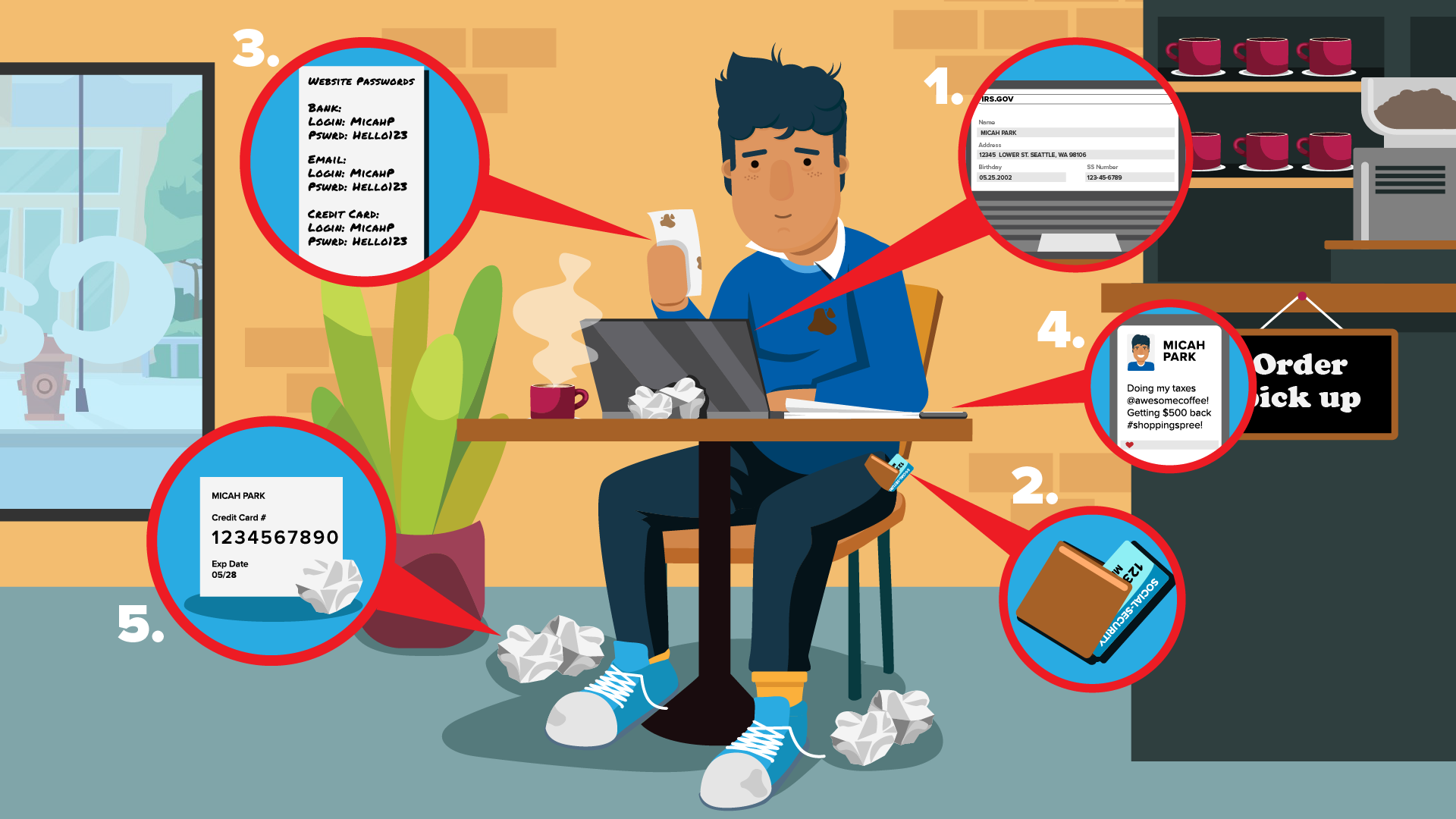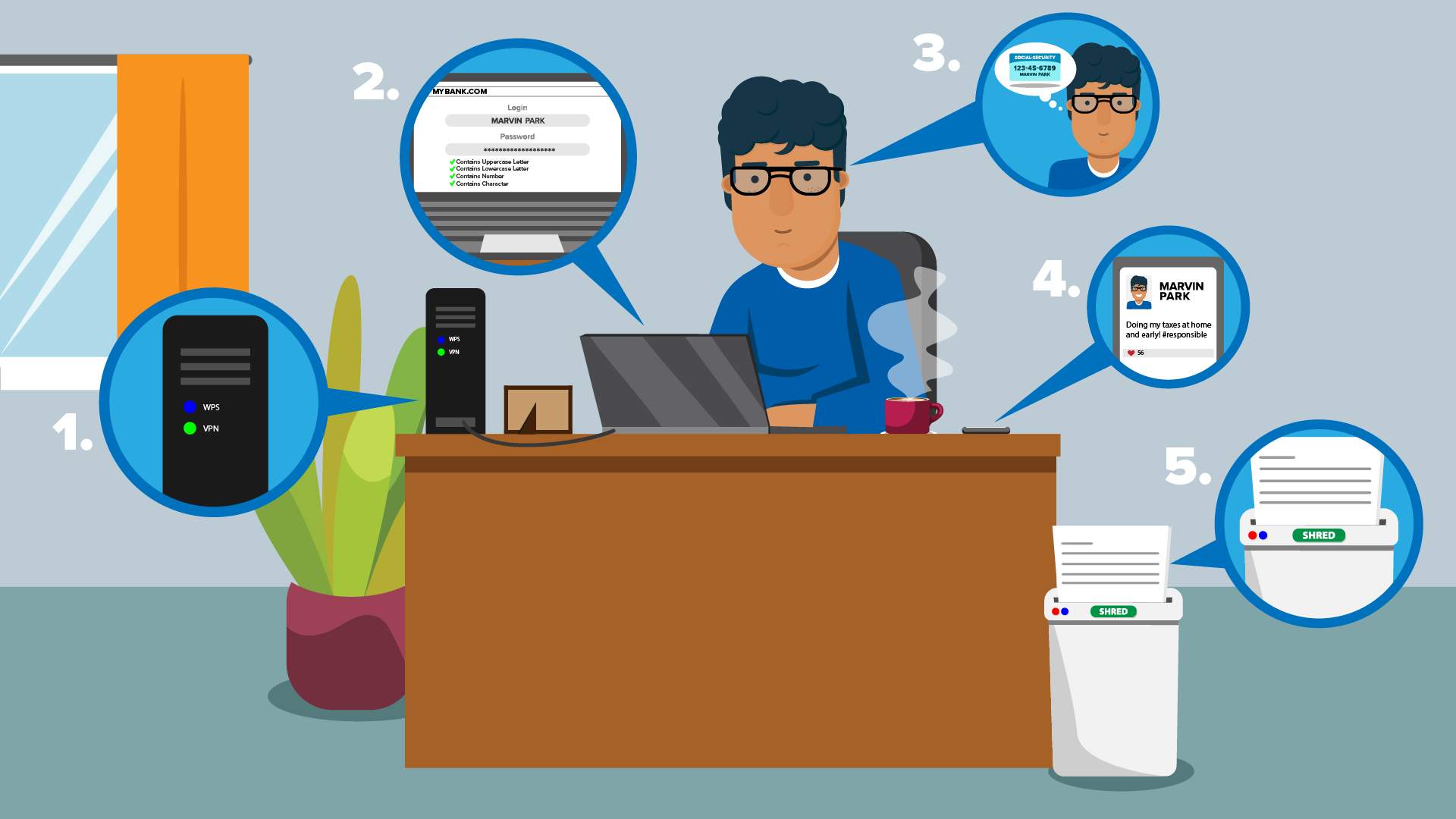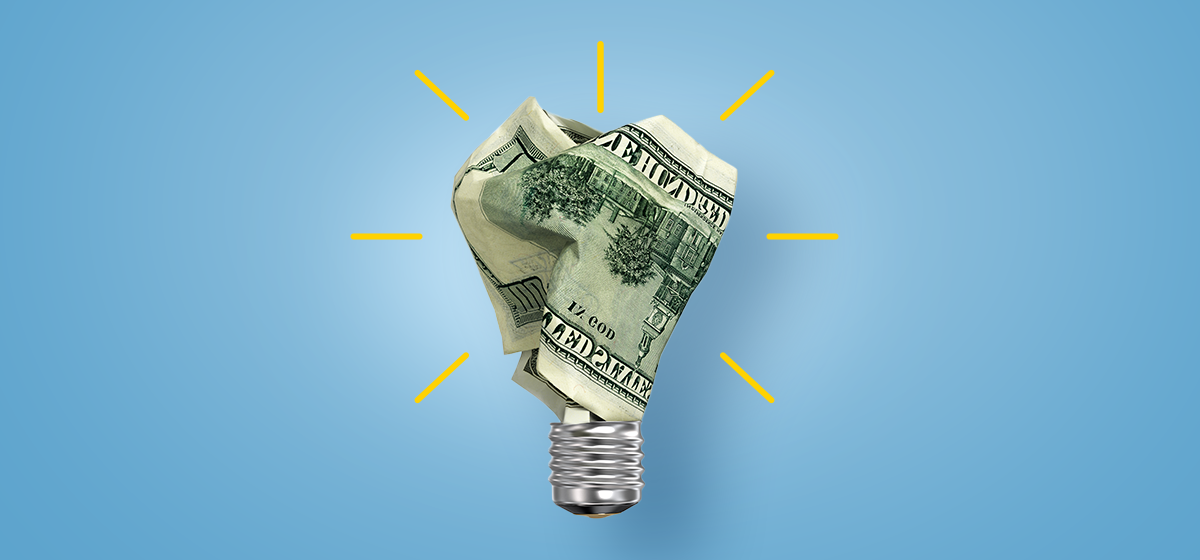When thinking about how to be “money smart,” the simple concept of “spend less, save more” probably comes to mind. But protecting your security, and hence your money and identity, takes far more than holding back on a new purchase or simply eating out less. Without taking the proper steps to secure your personal information to keep it away from peeping eyes, the risks of identity theft and other scams are very real. And no one wants those! According to data by the Federal Trade Commission, there were nearly 2.8 million fraud reports filed in 2021, with $5.9 billion in total fraud loss. So, what are some things you can start doing right away to help you be more money smart? We asked our friends (and twin brothers) Micah and Marvin, to help demonstrate. Micah will show you what NOT to do:

What About Micah Is Not-So-Smart?
1. Here, we see Micah filing his taxes online, which is typically quite efficient. But he’s doing his in a coffee shop. Whoa, bad move, Micah! Combine unsecured public wifi with sensitive personal information and you’re asking for trouble. Prying eyes are all around, physically AND virtually.
2. Micah also carries his social security card with him in his wallet (that’s a no-no) – even worse –and it’s dangerously close to falling out! Imagine if he loses that card? Anyone who gets their criminally-minded hands on it, along with his other personal information could easily apply for credit in his name, open up bank accounts and all kinds of other mischief. That could result in debt, or access to his hard-earned cash, health, and other records.
3. Uh-oh! There is also a list in Micah’s hand containing account login information (again, out in public and easy to lose!). He creates a simple password used for every account and his login includes his name. Names are easily obtained information, and from there, the password can be guessed or hacked in a matter of seconds. Once that happens, voila! Access to everything!
4. Micah posted a social media status update about doing his taxes at The Awesome Coffee House. He even shared the amount of his tax return (we guess he must be proud?). There are enough reasons to avoid sharing such personal information on social media. Even something as small as sharing your location can make you an easy target.
5. Lastly, we see crumpled balls of paper strewn about. Micah, obviously not a sterling example of organization and tidiness (and littering is never okay), regularly discards intact documents that he no longer needs, sometimes into public receptacles. These documents (in this case, an old credit card) still contain information that can easily be used to steal his identity and access his money.
Micah clearly needs a refresher course on being responsible and careful with personal information that could lead to loss of assets, stolen information and money and personal trouble. Maybe he should check in with his brother Marvin for some help?

Take Advice From Smart Money Marvin
1. Unlike “Not-so-Smart” Micah, Marvin is filing his taxes from home using a secure internet connection. He can enjoy his cup of coffee (and, ahem, he brewed his own at home, saving some cha-ching) knowing there aren’t any passersby looking over his shoulder as he enters sensitive information, or trying to hack his information.
2. Have you ever been frustrated by the “must-contains” while creating a password? Don’t be too irritated. Those requirements are meant to make your password more secure. Marvin is being particularly smart with his bank login by creating a long password that includes many different characters. It’s so good, in fact, that we can’t even guess it because he even avoids using his name. He also opts into Two Factor Authentication, which adds an extra layer of security and changes his passwords regularly. So smart, Marvin!
3. Marvin’s social security card is locked away in a secure location. He also has the number memorized for whenever he may need it. And thankfully, people can’t hack other people’s brains. At least not yet, anyway! Now he can rest assured that idle hands will never get his social security card.
4. If Marvin wants to make a social media status update about completing his taxes, he avoids sharing any personal information, such as his address, the amount of the refund and/or contact information. He keeps it simple and generic. Marvin is being #responsible.
5. He also has a shredder at home. This is the proper way to dispose of documents, statements, checks, credit cards, etc. because they can’t be pieced back together to reveal sensitive information, especially if he takes all those shreds and mixes them together! You may think disposing of them whole at home is safe, but just think who could have access after your trash leaves your house. Once it’s on the curb, it’s legally up for grabs, and not just by raccoons.
As you can see, it doesn’t take much to be money smart and protect your information. Adapting these simple steps toward security consciousness can prevent you from becoming a victim of stolen information that could lead to financial loss.
If you feel you may have risked your personal information and identity, look for these signs that have been identified by the Federal Trade Commission to tell if someone is using your identity.
For additional resources on protecting your information in the digital age, visit Moneytree’s Staying Secure page.
